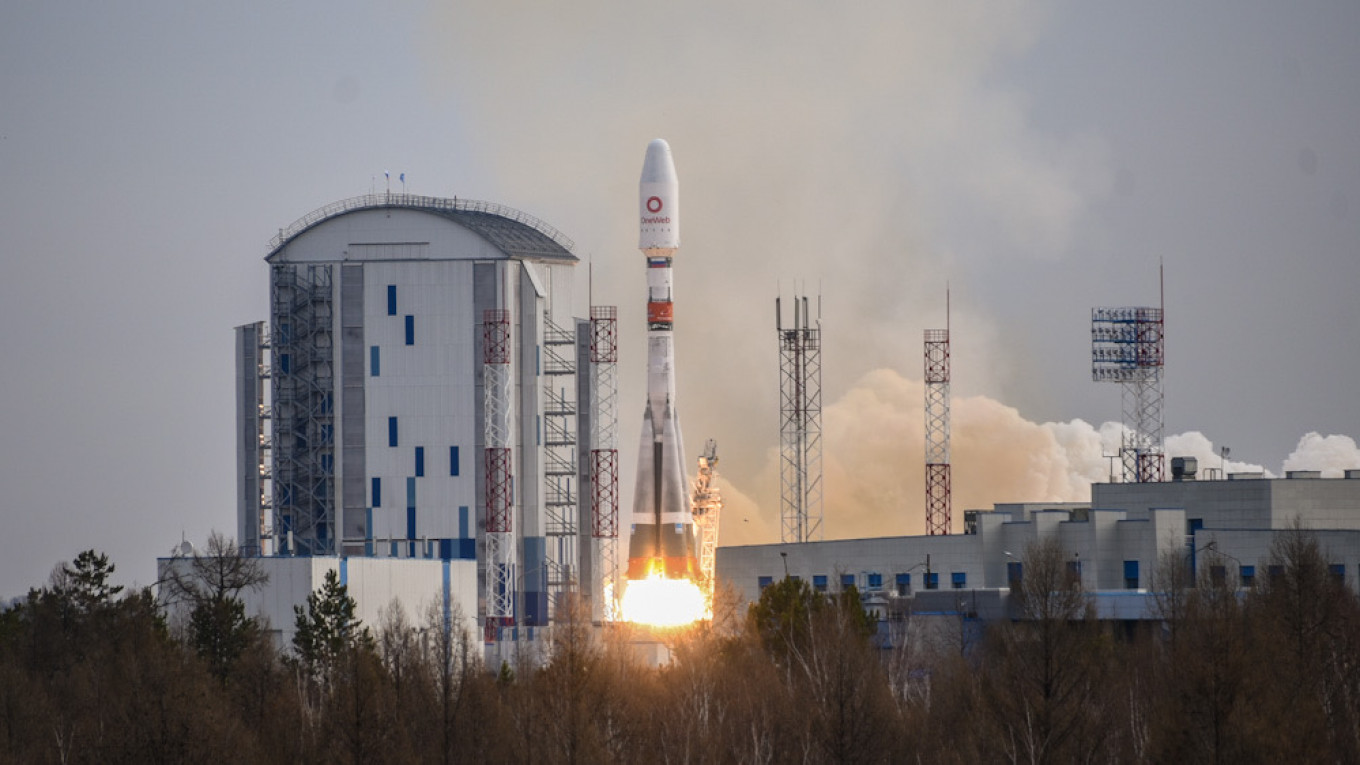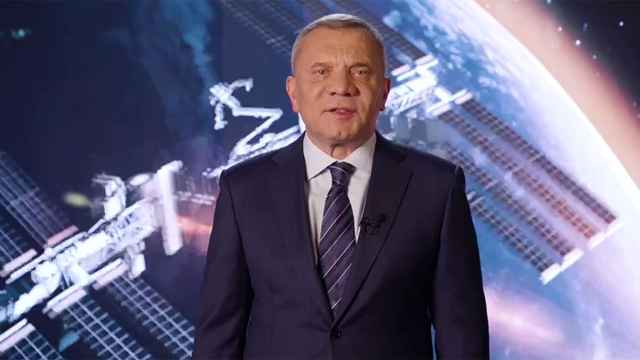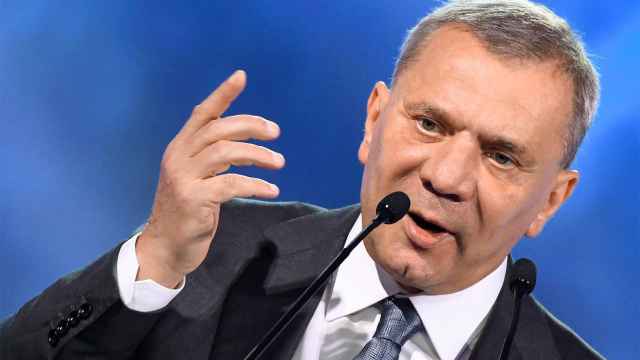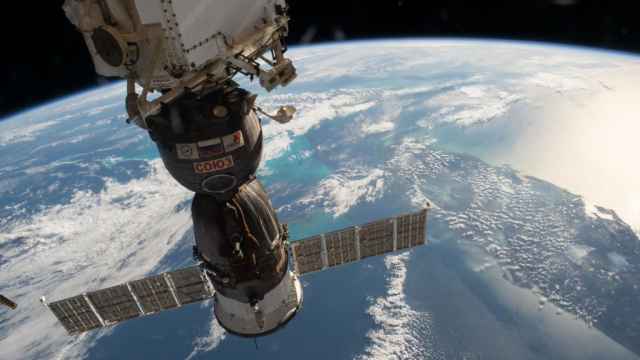A Soyuz rocket blasted off from the Vostochny cosmodrome in Russia's Far East on Monday carrying 36 U.K. telecommunications and internet satellites, the Roscosmos space agency said.
OneWeb, a London-headquartered company, is working to complete the construction of a constellation of low earth orbit satellites providing enhanced broadband and other services to countries around the world.
The company is competing against billionaires Elon Musk and Jeff Bezos in the race to provide fast internet via satellites for the world's remote areas.
Images released by Russia's space agency Roscosmos showed the Soyuz rocket taking off against hazy skies Monday morning at 7:14 am local time.
"All satellites have been successfully placed in target orbits and have been taken under customer control," Roscosmos said in a statement.
"Mission success!" OneWeb wrote on Twitter.
The U.K. company plans for its global commercial internet service to be operational by next year, supported by some 650 satellites.
Monday's launch was the third batch of its satellites placed into orbit from Russia, with earlier launches from the Vostochny cosmodrome of 36 satellites each taking place last month and in December.
OneWeb's first six satellites were also launched by a Russian-made Soyuz rocket, taking off from the space center in Kourou in French Guiana in February 2019.
The company launched 68 more from the Baikonur launch site in Kazakhstan last year.
The Vostochny launch site is one of Russia's most important space projects, designed to reduce reliance on the Baikonur space center Moscow currently rents from Kazakhstan.
The project has been consistently behind schedule, with its construction marred for years by multiple controversies including corruption.
A Message from The Moscow Times:
Dear readers,
We are facing unprecedented challenges. Russia's Prosecutor General's Office has designated The Moscow Times as an "undesirable" organization, criminalizing our work and putting our staff at risk of prosecution. This follows our earlier unjust labeling as a "foreign agent."
These actions are direct attempts to silence independent journalism in Russia. The authorities claim our work "discredits the decisions of the Russian leadership." We see things differently: we strive to provide accurate, unbiased reporting on Russia.
We, the journalists of The Moscow Times, refuse to be silenced. But to continue our work, we need your help.
Your support, no matter how small, makes a world of difference. If you can, please support us monthly starting from just $2. It's quick to set up, and every contribution makes a significant impact.
By supporting The Moscow Times, you're defending open, independent journalism in the face of repression. Thank you for standing with us.
Remind me later.






